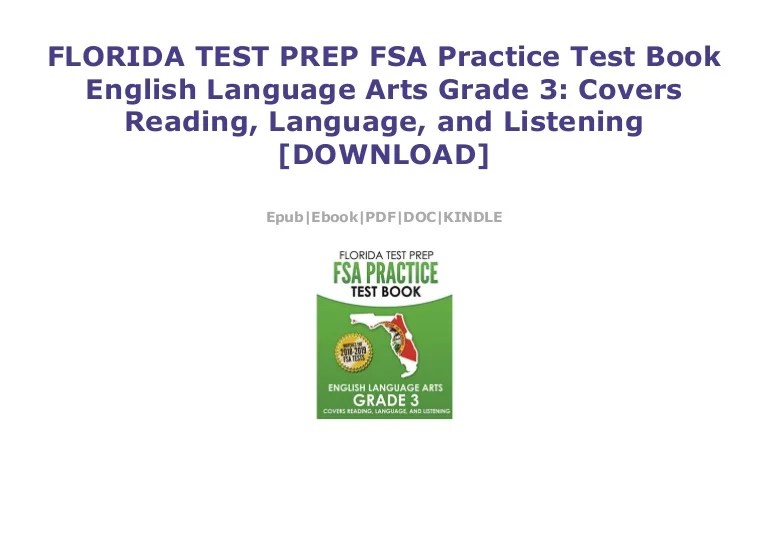The FLS Written Exam Study Guide serves as an invaluable companion for candidates aspiring to excel in this comprehensive assessment. Its meticulous content empowers you with a thorough understanding of the exam’s structure, content, and effective study strategies, ensuring your success on test day.
Delving into the intricacies of the exam, this guide unveils the key topics and concepts covered, providing a detailed roadmap to guide your preparation. With its expert insights, you’ll gain a clear understanding of the exam’s format, time constraints, and grading criteria.
Exam Overview
The FLS Written Exam is a comprehensive assessment designed to evaluate candidates’ proficiency in the FLS (Foreign Language Skills) framework. It is intended for individuals seeking to demonstrate their language abilities for academic, professional, or personal purposes.The exam consists of multiple sections, each focusing on a specific language skill.
These sections include reading comprehension, writing, listening, and speaking. The time limits and question formats vary depending on the section.
Content Coverage
The FLS Written Exam covers a comprehensive range of topics within the field of foreign language studies, ensuring a thorough evaluation of candidates’ knowledge and skills.
The exam is divided into sections or modules, each focusing on specific areas of language proficiency and pedagogical practices. The level of depth and complexity expected for each topic varies depending on the section and the specific requirements of the exam.
Language Proficiency
- Reading comprehension: Candidates must demonstrate the ability to understand and interpret written texts in the target language, including various text types and styles.
- Listening comprehension: This section assesses candidates’ ability to comprehend spoken language in the target language, including different accents and speech styles.
- Speaking proficiency: Candidates are required to demonstrate their ability to communicate effectively in the target language, both in prepared and spontaneous situations.
li>Writing proficiency: This section evaluates candidates’ ability to write clear, grammatically correct, and stylistically appropriate texts in the target language.
Pedagogical Practices
- Language teaching methodologies: Candidates must demonstrate their knowledge of various language teaching methodologies and their application in different contexts.
- Curriculum development and assessment: This section assesses candidates’ understanding of curriculum design principles and techniques for assessing language learning outcomes.
- Language acquisition theories: Candidates are required to have a strong foundation in language acquisition theories and their implications for language teaching.
- Cultural awareness: This section evaluates candidates’ understanding of the cultural context of the target language and its impact on language learning and teaching.
Study Materials
Preparing for the FLS written exam requires a comprehensive approach to study materials. To ensure success, it is essential to utilize both official and additional resources effectively.
Official Study Materials
The exam board provides a range of official study materials designed to guide candidates through the exam content. These materials typically include:
- Exam syllabus: Artikels the exam format, topics covered, and assessment criteria.
- Past papers: Previous exam papers provide valuable insights into the exam structure and question types.
- Specimen papers: These sample papers offer a mock exam experience, allowing candidates to practice under timed conditions.
Additional Study Resources
Beyond the official materials, there are numerous additional resources available to supplement your preparation:
- Textbooks: Comprehensive textbooks provide in-depth coverage of the exam content, offering a structured learning experience.
- Online courses: Interactive online courses offer a flexible and engaging way to study, often providing additional materials and support.
li>Practice exams: Practice exams simulate the actual exam conditions, helping candidates identify areas for improvement and build confidence.
Effective Utilization
To maximize the effectiveness of your study materials, consider the following tips:
- Start early: Begin your preparation well in advance to allow ample time for thorough study.
- Create a study plan: Structure your study time to cover all exam topics efficiently.
- Use a variety of resources: Utilize different study materials to reinforce concepts and cater to various learning styles.
- Practice regularly: Engage in practice exams and exercises to enhance your problem-solving skills.
- Seek support: Don’t hesitate to seek clarification from teachers, tutors, or online forums when needed.
Study Techniques
To effectively prepare for the FLS Written Exam, implementing strategic study techniques is crucial. This guide will provide insights into tailored study strategies, time management tips, and comprehension-enhancing methods.
Active learning plays a vital role in exam preparation. Note-taking during study sessions helps reinforce concepts and enhances recall. Summarizing key points and concepts in your own words deepens understanding and improves retention. Additionally, practicing sample questions familiarizes you with the exam format and question types, boosting confidence and reducing test anxiety.
The FLS written exam study guide is comprehensive, covering everything you need to know for the exam. If you’re not sure about the difference between a hub drain and a floor drain, this article provides a clear explanation. With the FLS written exam study guide, you’ll be well-prepared to ace the exam.
Creating a Study Schedule, Fls written exam study guide
A well-structured study schedule is essential for efficient preparation. Allocate specific time slots for studying, ensuring consistency and avoiding last-minute cramming. Break down large study blocks into smaller, manageable chunks to maintain focus and prevent burnout.
Time Management
Effective time management is crucial. Prioritize study topics based on difficulty and time constraints. Utilize time-saving techniques such as the Pomodoro Technique, which involves alternating focused study sessions with short breaks.
Improving Comprehension
Comprehension is key to successful exam performance. Engage with the study material actively by asking questions, making connections to real-world examples, and seeking clarification when needed. Visual aids, such as diagrams and charts, can enhance understanding and retention.
Exam Preparation

In the lead-up to the exam, it is essential to allocate ample time for preparation and revision. This includes reviewing study materials, practicing under timed conditions, and getting sufficient rest.
Regularly revisiting your study notes and materials will help reinforce the concepts and improve your retention. To enhance your understanding and recall, try explaining the concepts to yourself or a study partner. Active recall, such as flashcards or practice questions, can also be effective in testing your knowledge and identifying areas that require further attention.
Practice Under Timed Conditions
Exam simulations are crucial for developing time management skills and reducing anxiety on the actual exam day. Practice solving questions under timed conditions to become accustomed to the pace and pressure of the exam. This will help you allocate your time effectively and avoid feeling overwhelmed during the real exam.
Adequate Rest
Prioritizing sleep is paramount for maintaining focus and cognitive function during the exam. Aim for 7-9 hours of quality sleep the night before the exam. Avoid cramming or studying late into the night, as this can impair your ability to perform optimally.
Managing Stress and Anxiety
It is natural to experience some stress and anxiety before and during an exam. However, it is important to manage these emotions effectively to avoid negatively impacting your performance.
- Deep breathing exercises can help calm your nerves and reduce anxiety levels.
- Positive self-talk can boost your confidence and reduce self-doubt.
- Visualize yourself performing well on the exam to build positive mental imagery.
Maintaining a Positive Attitude
A positive attitude can significantly enhance your exam performance. Focus on your strengths and abilities, and believe in your potential to succeed. Avoid dwelling on negative thoughts or comparing yourself to others. Instead, stay focused on the task at hand and give it your best effort.
Commonly Asked Questions: Fls Written Exam Study Guide
What is the purpose of the FLS Written Exam?
The FLS Written Exam assesses candidates’ knowledge and skills in a specific field, providing certification or licensure upon successful completion.
How long is the FLS Written Exam?
The duration of the FLS Written Exam varies depending on the specific exam, typically ranging from 2 to 4 hours.
What is the passing score for the FLS Written Exam?
The passing score for the FLS Written Exam is determined by the exam board and may vary depending on the exam.
